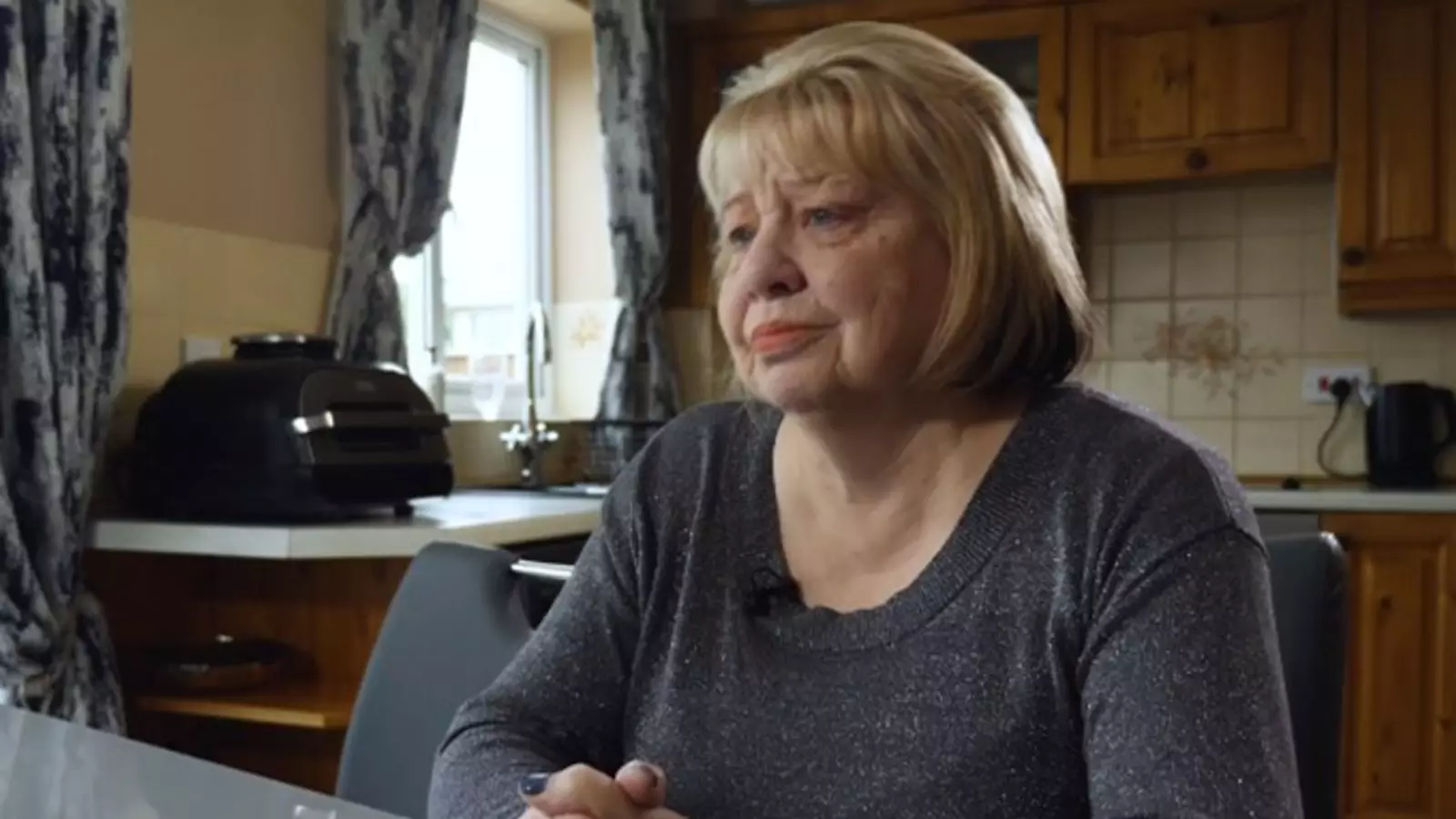The grief experienced by loved ones during the terminal stages of illness is often compounded by the challenges faced in securing adequate care. Diane Edwards, who recently lost her ex-husband Mick to bowel cancer, shared her harrowing journey through the healthcare system. Just ten days after his death, Diane opened up about the exhaustion, desperation, and often bureaucratic pitfalls that marked their struggle during his illness. Through her story, we gain insight into the complexities and inadequacies that can disrupt the last moments of life and the need for compassionate care in palliative situations.
Reflecting on the profound change in her husband due to illness, Diane acknowledges how it altered not only Mick but the very fabric of their relationship. She recounts moments filled with distress, such as taking care of him when the manifestations of his illness became unbearable—blood loss and despair clouding their shared memories. Cancer is not merely a physical ailment; it transforms individuals into shadows of their former selves, forcing caregivers to confront heartbreaking realities daily. The emotional toll of this distressing journey cannot be overstated and emphasizes the need for better compassionate support for both patients and families.
Diane’s account highlights considerable gaps within the existing healthcare framework. Despite receiving assistance through the National Health Service (NHS), Diane felt that the support provided was often insufficient and not tailored to the medical needs of an individual grappling with relentless deterioration. Although charitable organizations and care staff were present, Diane notes that they lacked the specialized medical training required to manage Mick’s escalating needs effectively. The struggle for suitable care becomes an additional burden for families already grappling with profound grief and emotional fatigue.
The transition from hospital care to home care is often complex. After facing complications in Mick’s health, he qualified for NHS Continuing Healthcare (CHC), designed for individuals requiring intensive assistance. However, a subsequent remote assessment deemed his needs more aligned with social care rather than the specialized palliative care he and Diane deemed necessary. This diagnosis not only raised fears of financial instability for Diane but also cast doubt on the adequacy of home care solutions for those in similar situations.
The assessment process for CHC is riddled with inconsistencies, which can significantly impact patient outcomes. Data from The Nuffield Trust revealed alarming disparities in eligibility rates for CHC across different regions, with some areas approving over 40% while others fell below 10%. These findings point to a system that may lack the uniformity and transparency necessary to ensure every individual receives adequate assessment and care. The obstacles in this bureaucracy can lead to vulnerable patients slipping through the cracks, compounding their suffering during an already painful journey.
As Diane poignantly observed, when Mick was assessed via video link—an approach that proved unsuitable given his deteriorating condition—he could not grasp his situation adequately. The absence of family during such pivotal assessments signifies a failure to prioritize the patient’s emotional and psychological well-being. The assessment process should include a holistic understanding of the patient’s needs, as well as the emotional support systems surrounding them.
The overarching issues highlighted by Diane’s experience demonstrate a critical need for long-term reform within the social care system. NHS England asserts that individuals should receive tailored packages reflecting their needs; however, as shown in Mick’s case, the reality falls short of these ideals. The need for compassionate, personalized end-of-life care should drive policy reforms, ensuring that families do not face the harrowing task of navigating a complex system on their own at such vulnerable times.
Diane’s plea for change extends beyond a personal narrative; it reflects a broader societal concern over how terminally ill patients are treated within the healthcare framework. The reflection on Mick’s desire for assisted dying poses an ethical discussion about autonomy in end-of-life choices, a dialogue that society must urgently engage in.
The heart-wrenching story of Diane and Mick serves as a call to action. It underscores the urgent need for reform in how we approach end-of-life care and highlights the pivotal role that compassion plays in facilitating a dignified experience for patients and their families. Compassionate politics and healthcare practices are essential to ensure that no individual suffers unnecessarily during their final moments, and every family receives the support they desperately need.


Leave a Reply